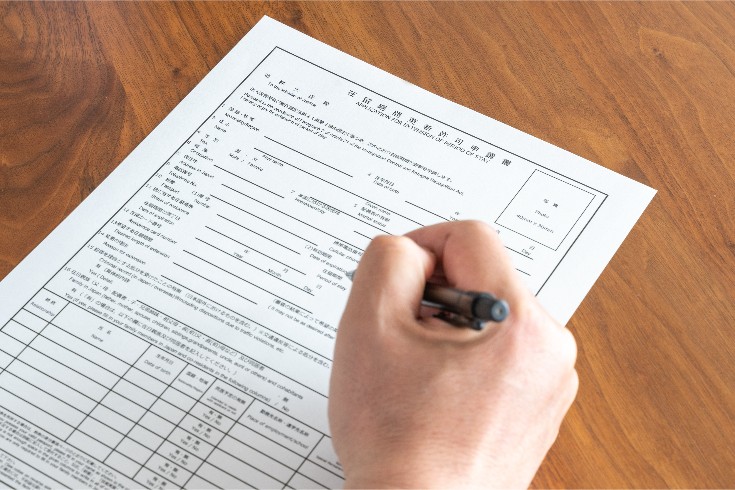Is 'No Claim, No Return' Absolutely Non-Refundable? Explaining its Legal Effectiveness

On online marketplaces and auction sites, you often see statements such as “No claims, no returns, please.” If such a statement is included in the product description, does it mean that the buyer absolutely cannot make a claim or return the product?
In this article, we will explain the legal implications of the “No claims, no returns” statement.
Pay Attention to the Effect of Special Agreements
When “No Claim, No Return” is Valid
If a seller indicates “No Claim, No Return” for an item, it is generally understood that the seller will only accept offers from those who agree not to make any claims about the product and not to return it. This can be considered a special agreement by the seller to not assume any warranty liability (Japanese Civil Code Article 572).
Not assuming warranty liability means that the seller (or the exhibitor) is exempt from responsibility if the product does not conform to the contract in terms of type, quality, or quantity. For example, there may be statements like “This is junk, so no claims or returns, please” or “This is used and old, so no claims or returns, please”, or simply “No claims or returns, please”. Such special agreements are, in principle, valid. If it says “This is junk, so no claims or returns, please”, the seller may be able to avoid responsibility for the item not working properly.

“No Claim, No Return” and Contract Non-Conformity
However, just because “No Claim, No Return” is indicated, it does not mean that this special agreement is always valid. Its effectiveness is determined under specific circumstances.
In the revised Civil Code enacted on April 1, 2020, the term “defect” was replaced with “contract non-conformity”. While “defect” was defined as “not having the quality or performance that should normally be possessed or that was scheduled in the contract”, “contract non-conformity” is defined as “something that does not conform to the content of the contract in terms of type, quality, or quantity”. Therefore, the substantive content is almost the same.
Civil Code (Buyer’s Right to Demand Performance)
Article 562: When the delivered object does not conform to the content of the contract in terms of type, quality, or quantity, the buyer may demand the seller to complete the performance by repairing the object, delivering a substitute, or delivering the deficient part. However, the seller may complete the performance in a different way than the buyer requested, as long as it does not impose an unreasonable burden on the buyer.
As such, legally, when a normal sales contract is concluded, the seller assumes responsibility for “contract non-conformity”. Specifically, if the seller did not adequately explain the quality of the product (such as scratches or dirt that the seller knew about), or if the seller knew that the quantity of the item was insufficient but did not inform the buyer and proceeded with the transaction, the seller cannot be exempted from liability.
If such facts exist, even if “No Claim, No Return” is indicated, the seller cannot avoid responsibility. The buyer can request contract cancellation or damages based on non-performance liability (Japanese Civil Code Article 564), and can also request completion of performance by repairing the object, delivering a substitute, or delivering the deficient part, or a reduction of the price (Japanese Civil Code Articles 562 and 563). In some cases, cancellation due to error or fraud (Japanese Civil Code Articles 95(1) and (2), and 96(1)) may also be recognized.

Key Considerations for Sellers and Buyers
No Claims, No Returns from the Seller
When a consumer purchases a product from a business, in other words, when the seller who stipulates no claim, no return is not an individual but a business, how is the no claim, no return clause treated?
Japanese Consumer Contract Act (Invalidity of clauses exempting business operators from liability for damages)
Article 8: The following clauses in consumer contracts shall be invalid.
1. Clauses that completely exempt a business operator from liability for damages caused to consumers due to the business operator’s non-performance of obligations, or grant the business operator the authority to determine whether or not it has such liability
2. Clauses that partially exempt a business operator from liability for damages caused to consumers due to the business operator’s non-performance of obligations (limited to those caused by the business operator, its representative or its employee’s intentional or gross negligence), or grant the business operator the authority to determine the extent of its liability
If the seller can be considered a business operator, when listing a product, it is required by the Japanese Specified Commercial Transactions Act to display on the advertisement any special agreements regarding statutory returns and responsibilities. Also, it is necessary to clearly indicate whether the display regarding returns is a special agreement display for statutory return rights, a special agreement display for responsibilities, or a display for both. Even if the no claim, no return display clearly indicates that it has both meanings of the special agreement for statutory return rights and the special agreement for responsibilities. If the seller is a business operator and the consumer is the buyer, the no claim, no return as a responsibility special agreement, which exempts all liability for damages and excludes the right to cancel, is generally invalid under Article 8 of the Japanese Consumer Contract Act.
Considerations for No Claims, No Returns
In flea market apps and online auctions, where purchases are made without seeing or touching the actual product, sellers face the risk of receiving complaints such as “the product was damaged later” or “it’s different from what I thought,” or being asked to return the product.
Therefore, by clearly stating no claim, no return, sellers can reduce the risk of receiving complaints or returns. While this is a convenient measure, it often leads to trouble between the seller and the buyer.
Sellers need to clearly inform buyers in advance about any damage or malfunctions of the product, otherwise the no claim, no return may become invalid. Even if the seller thinks it’s a minor detail, the buyer might consider it important. It’s safer to disclose all potential issues that could lead to a claim.
Buyers should always check whether a no claim, no return special agreement is in place. If there is such an agreement, it is generally impossible to hold the seller accountable later. It’s important to ask as much as possible about any damage or malfunctions of the product and understand the condition of the product before making a purchase.

Summary: No Claims, No Returns May Have Positive Effects on User-to-User Transactions (CtoC)
The market size of user-to-user transactions continues to expand year by year.
The special provision of “no claim, no return” was conceived with the aim of establishing transactions that both sellers and buyers can agree on and feel good about. It is hoped that this will enable satisfying transactions for both parties and promote the healthy development of user-to-user transactions.
Guidance on Measures by Our Firm
Monolith Law Office is a legal office with high expertise in both IT, particularly the internet, and law. In recent years, the need for legal checks around online auctions and flea market apps has been increasing. Taking into account various legal regulations, our firm analyzes the legal risks associated with businesses that have already started or are about to start, and we aim to legalize them as much as possible without stopping the business. Details are described in the following article.





















